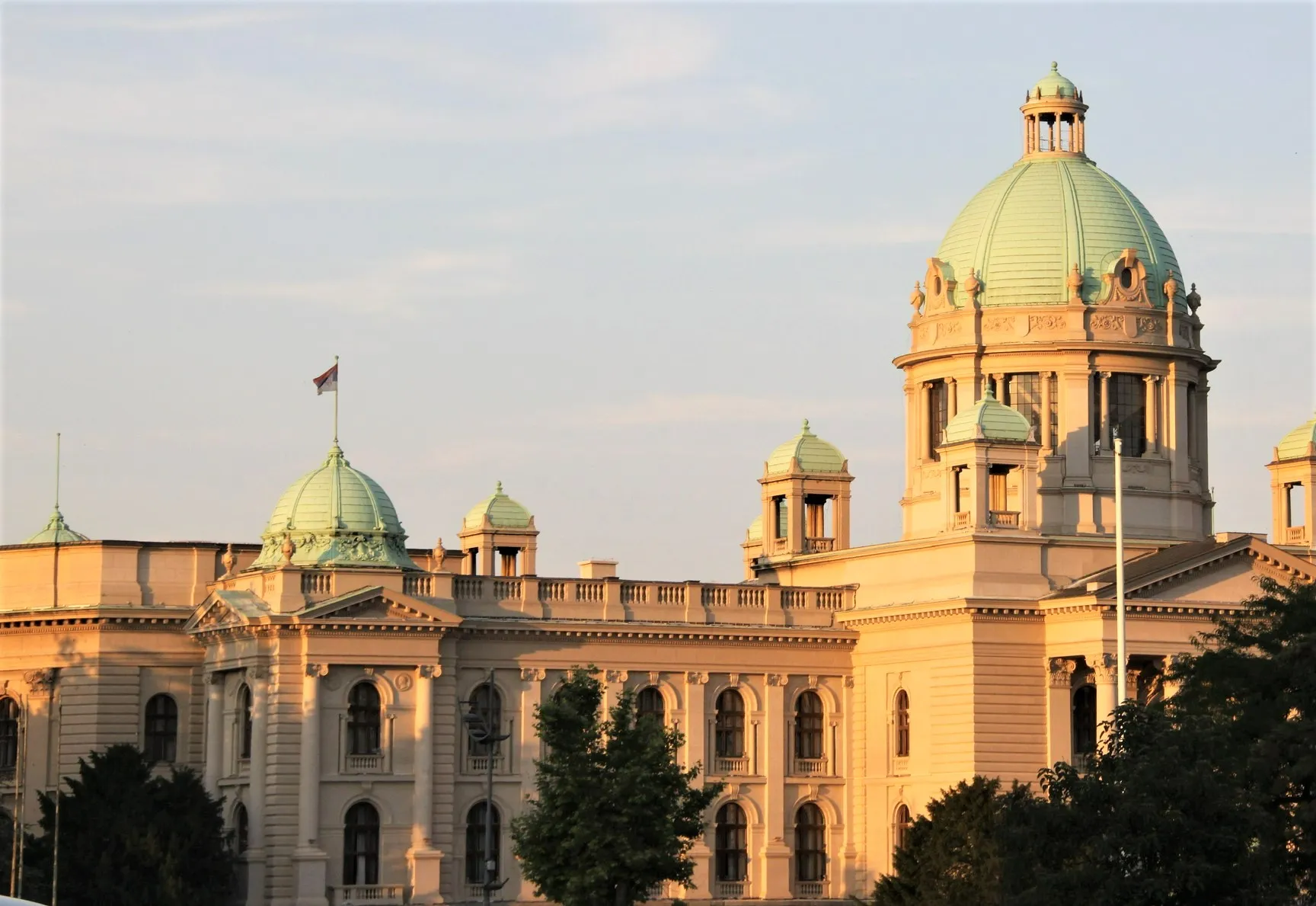State of democracy in Serbia: new elections, old scourges

While Serbian citizens are called to the polls on Sunday, the electoral campaign highlights longstanding challenges with democracy and the conundrum of choosing the EU accession path once and for all.
Disclaimer: Views expressed in this commentary are those of the author. This commentary is independent of specific national or political interests. Views expressed do not necessarily represent the institutional position of International IDEA, its Board of Advisers or its Council of Member States.
Serbian voters are heading to the polls on Sunday, 3 April 2022, for presidential, early parliamentary and partial local elections, including the key race for the Capital, Belgrade.
President Aleksandar Vučić, his Serbian Progressive Party (SNS), and main coalition partner Socialist Party of Serbia (SPS), are expected to renew their victory, despite a drop in popularity following recent environmental protests and corruption allegations.
Elections take place in an atmosphere of political polarization and steady deterioration of democratic standards. The opposition largely boycotted the 2020 parliamentary elections arguing the conditions for a free and fair race were lacking. With presidential elections looming, earlier this year, Vučić dissolved the Parliament without publicly articulating the reasons, and seemingly for electoral calculations that have little to do with concerns over the missing opposition in Parliament.
For the first time in two decades, International IDEA’s 2021 Global State of Democracy Report downgraded Serbia from a democracy to a hybrid regime. The steady deterioration of election standards, media integrity, checks on government and civil liberties are some of the key indicators that cost Serbia this downgrade.
The three-fold 2022 electoral campaign reconfirms this trend in the country’s democracy.
The legal framework for elections was amended in February 2022, following two parallel dialogues between parties, led respectively by the European Parliament and the Speaker of the National Assembly. Amendments primarily sought to increase the transparency of the electoral process and campaign finance, tackle the abuse of office and of administrative resources, and review the structure of elections administration to increase representation of the opposition.
However, the time to effectively implement these measures was scarce. During the campaign, civic activists have voiced concerns over longstanding problems, including lack of impartial media coverage, pressure on voters, misuse of state resources and fear of possible irregularities on election day. Although the level-playing field in the Sunday race is questionable, these elections represent an opportunity for Serbia’s opposition to return to the institutional track in Parliament and regain access to state funding.
Moreover, elections in Serbia take place in the context of the ongoing war in Ukraine, a topic that has dominated the electoral campaign. President Vučić has capitalized on this geopolitical development placing emphasis on peace and stability, and discouraging the electorate from change in difficult times.
Vučić spoke in favour of Ukraine’s territorial integrity and backed the 2 March UN resolution to end the Russian military operation in Ukraine but remains reluctant to align with the European Union sanctions against Russia. This position largely resonates with the feelings of the electorate in the country. Meanwhile, Russia’s aggression in Ukraine also re-exposed longstanding issues of integrity and disinformation in Serbian media. Pro-government media provided a largely pro-Russian coverage of events from the start, paving the ground for what later became Serbia’s official stance on the conflict. One daily went as far as publishing a frontpage that read “Ukraine attacked Russia”.
But while Vučić’s position on the Russia-Ukraine conflict may be convenient for electoral campaign purposes, it puts Serbia, which is holding accession talks since 2014, at odds with its EU integration agenda. It also puts the EU in an uncomfortable spot, drawing additional scrutiny on the effectiveness of its strategy in the Western Balkans and calls to review it.
Once elections are over, the EU is expected to increase pressure on Serbia to fully align with its Foreign and Security Policy. It should do so on improving democratic standards as well.




